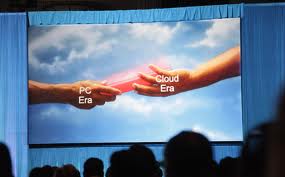According to the experts, the cloud computing is upon us. While the exact concept is difficult to define precisely, some elements have been firmly established. The cloud, essentially, reflects a model of decentralized data and processing, and the benefits promise to change how we interact with our computers. Here are a few of the benefits that computer users can expect to see in the near future:
Cloud Computing
By now, most computer users understand that the cloud deals with storing files and allowing access from a variety of devices. What some do not understand, however, is that the paradigm also involves offloading the task of running programs to dedicated servers. Instead of simply storing files, cloud servers in use right now are sending programs over networks that work as well as programs installed on individual devices. While the concept of Internet-accessible file storage is helpful, being able to run programs remotely has a number of tremendous benefits for your computing life at home and in business. If you are unfamiliar with this technology and want to learn more about your personal options visit Dell.com.
Platform-Independent Work and Entertainment
Today, users must ensure that software is compatible with their operating systems. Windows programs, for example, will not run on Apple computers unless they are specifically compiled to support them. Cloud applications, however, are delivered through web browsers, and users can simply use operating systems that support modern browsers. In addition, users will be able to easily access their work from home, and transferring data between different devices will not be necessary.
Upgrades Will Become less Frequent
The current paradigm of how we interact with computers entails buying better hardware that can deal with larger volumes of information and process data more quickly. The cloud has the potential to change this. Instead of buying a bigger hard drive and transferring data to it, the cloud paradigm allows users to simply buy more space on a cloud server. Instead of upgrading the RAM or processor on a computer, users can instead rely on the power of the cloud application server. Users will be able to use their computers for longer periods of time than before.
Better Smart Phone Support
There are actually two major revolutions currently underway. Aside from the growing acceptance of cloud ideas, users are moving in large number to a new breed of computing devices. Smart phones and tablets are now outselling desktops and laptops, and users are using these devices for a growing number of tasks. Backed by cloud application and data servers, users can use these devices to accomplish tasks that formerly required specific apps. With a wireless keyboard, these devices will be capable of performing most of the tasks that generally require a traditional computer. Although they are limited in some ways when compared to desktops and laptops, smart devices will become major business platforms because of the accessibility provided by the cloud paradigm.
New Usability Paradigms
The cloud gives developers tremendous freedom when compared to the traditional computing paradigm. Instead of having to focus on file portability, developers can instead use advanced techniques to integrate data within their programs. Further, the cloud paradigm makes collaboration far simpler than with other techniques. Automatic, easy revision logging is expected to become standard in future office programs, and sophisticated back-end programs will combine document creation with tools for tracking progress and communication. The traditional task of delegating responsibilities is likely to change as users can work together in an interactive manner.



